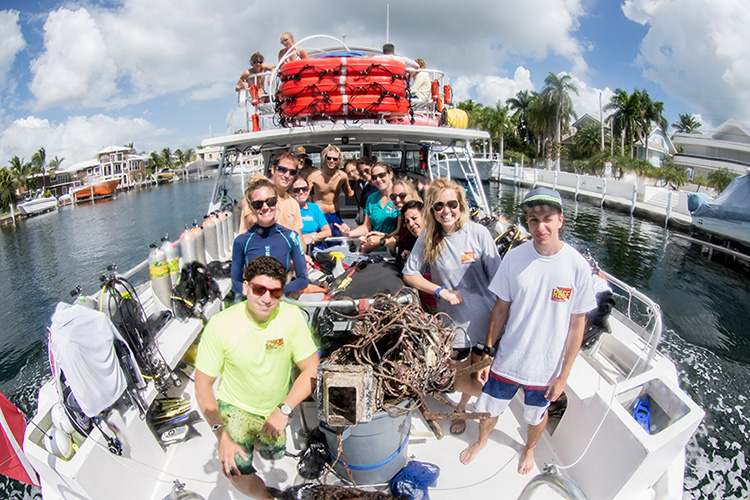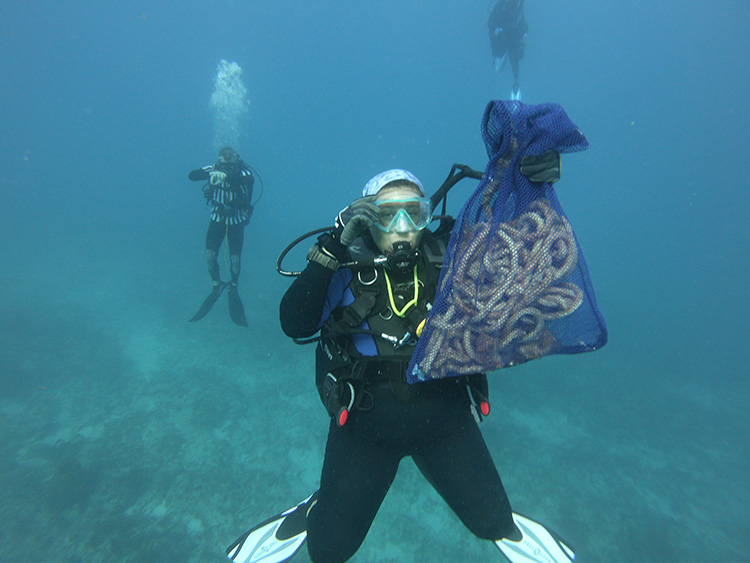Sanctuary invites participation in underwater marine debris removal
April 2018
In response to the significant amount of marine debris left in the wake of Hurricane Irma, Florida Keys National Marine Sanctuary and the National Marine Sanctuary Foundation is engaging local tour operators and other businesses to identify and remove lobster traps, fishing gear, construction materials, and other items that pose significant pollution and navigation threats.
Lost or abandoned fishing gear and other trash entangles and harms corals, sea fans, sponges, sea turtles, manatees, and other marine life. It also degrades seagrass, hardbottom, coral reef, and mangrove habitats and detracts from the natural beauty of the Florida Keys.
"Marine debris poses a serious threat to the structural integrity of the habitats that contribute to the health of the sanctuary," said Sarah Fangman, sanctuary superintendent. "This coordinated effort with our partners will directly address the threat of marine debris by removing it from sanctuary waters. In addition, the sanctuary will work to identify marine debris hotspots for future cleanup efforts."

In October 2017, the sanctuary advisory council held a special session to discuss community recovery in the wake of Hurricane Irma. Community members urged the advisory council to lead a coordinated effort to address submerged marine debris within sanctuary waters.
The advisory councils Marine Debris Working Group developed Goal: Clean Seas Florida Keys, protocols to guide skilled divers in proper marine debris removal and reporting techniques. Permits may be required for certain activities within the sanctuary to ensure that removal is done in an environmentally-responsible manner and adheres to all applicable federal and state laws and regulations. Debris disposal should be coordinated through Monroe County and municipalities.

Blue Star dive operators are eligible to apply for financial assistance from the National Marine Sanctuary Foundation to participate in Goal: Clean Seas Florida Keys. Blue Star operators are recognized by the sanctuary for training staff and educating clients in responsible, sustainable practices to reduce impact on sensitive marine habitat.
Organizations and agencies participating in the marine debris working group include NOAA Marine Debris Program, National Marine Sanctuary Foundation, Florida Department of Environmental Protection, Florida Fish and Wildlife Conservation Commission, Florida Park Service, Florida Sea Grant, Florida Keys Commercial Fishermen's Association, Florida Keys Dive Center, History of Diving Museum, MOTE Marine Lab, National Association of Underwater Instructors, NAUI Green Diver Initiative, Project Aware Foundation, Rainbow Reef Dive Center, and REEF Environmental Education Foundation.
The public can report debris observations to www.mote.org/cocean.

